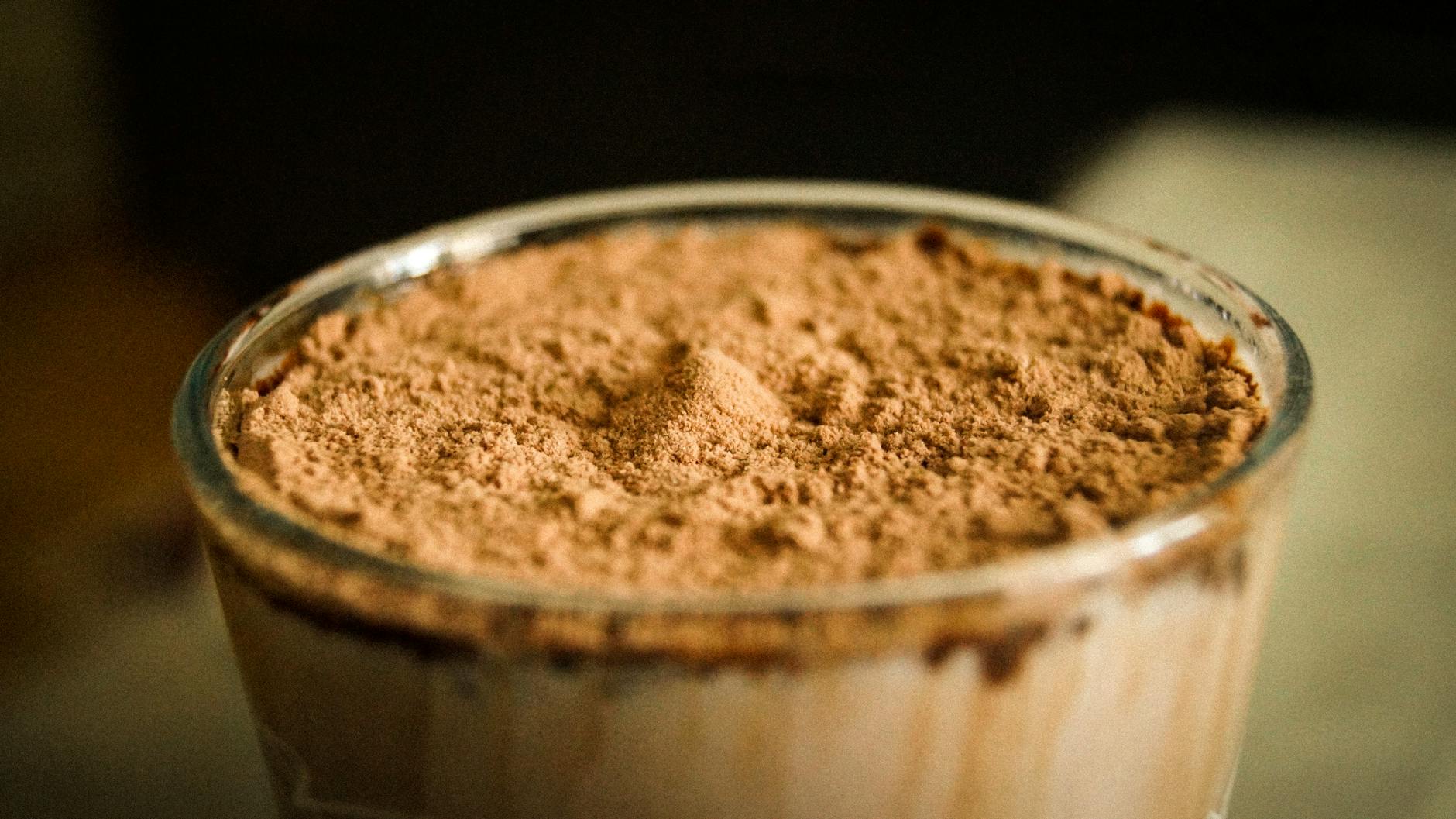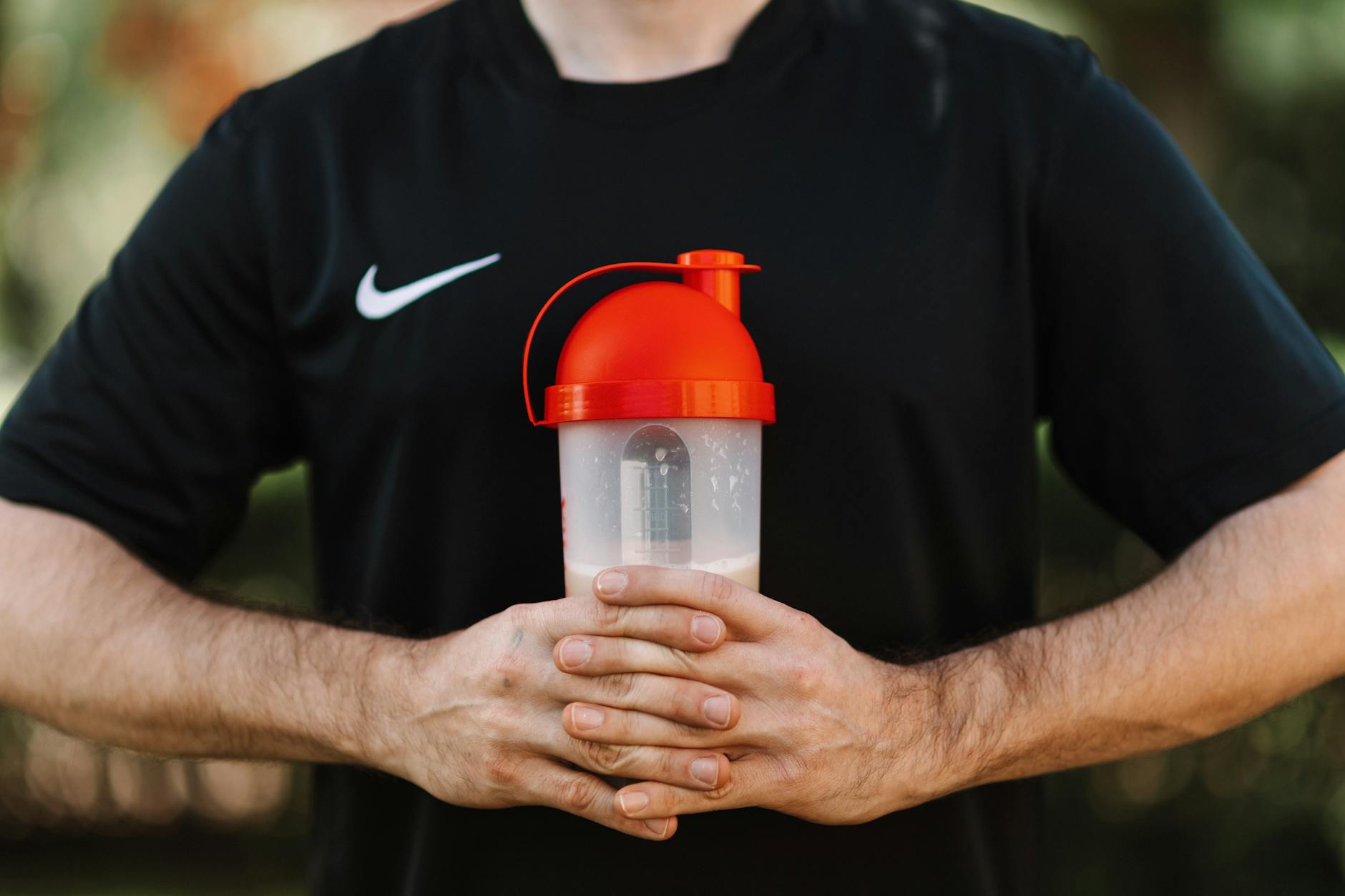Are you struggling to shed those extra pounds? You’re not alone. Millions of people worldwide battle with weight loss, often feeling frustrated and overwhelmed by conflicting advice. But here’s a game-changer: protein supplements could be the missing piece in your weight loss puzzle.
Protein isn’t just for bodybuilders anymore. It’s a powerful ally in your weight loss journey, helping to boost metabolism, reduce appetite, and preserve lean muscle mass. But with so many options flooding the market, how do you choose the right protein supplement? From whey to casein, plant-based to blends, the choices can be dizzying.
In this comprehensive guide, we’ll cut through the confusion and explore the best protein supplements for weight loss. We’ll dive into the benefits of different types of protein, help you understand which option might work best for your goals, and show you how to maximize your results. Whether you’re a fitness novice or a seasoned gym-goer, get ready to supercharge your weight loss efforts with the power of protein!
Understanding Protein Supplements for Weight Loss
How protein aids weight loss
Protein plays a crucial role in weight loss by:
- Increasing satiety
- Boosting metabolism
- Preserving lean muscle mass
- Reducing cravings
A high-protein diet can help you feel fuller for longer periods, leading to reduced calorie intake throughout the day. Additionally, protein has a higher thermic effect compared to carbohydrates and fats, meaning your body burns more calories digesting it.
Importance of quality and purity
When choosing protein supplements for weight loss, quality and purity are paramount:
- Look for third-party tested products
- Avoid supplements with unnecessary additives
- Check for artificial sweeteners and fillers
| Quality Indicator | Why It Matters |
|---|---|
| Third-party testing | Ensures product safety and accuracy of label claims |
| Minimal additives | Reduces potential negative health effects |
| Natural ingredients | Supports overall health and weight loss goals |
Types of protein supplements
There are several types of protein supplements available, each with unique benefits:
- Whey protein
- Fast-absorbing
- Rich in essential amino acids
- Casein protein
- Slow-releasing
- Ideal for prolonged satiety
- Plant-based proteins
- Suitable for vegans and vegetarians
- Often contain additional nutrients
- Protein blends
- Combine different protein sources
- Offer benefits of multiple protein types
Choosing the right protein supplement depends on your specific weight loss goals, dietary restrictions, and personal preferences. In the next section, we’ll dive deeper into whey protein, often considered the gold standard for protein supplements.

Whey Protein: The Gold Standard
Whey protein is widely considered the gold standard of protein supplements for weight loss due to its exceptional nutritional profile and rapid absorption. Let’s explore why it’s such a popular choice and how it can benefit various individuals.
Best options for lactose-intolerant individuals
While whey protein is derived from milk, there are options for those who are lactose intolerant:
- Whey protein isolate
- Hydrolyzed whey protein
- Lactase-enriched whey protein
| Protein Type | Lactose Content | Digestibility | Protein Concentration |
|---|---|---|---|
| Whey Concentrate | 4-8% | Moderate | 80% |
| Whey Isolate | <1% | High | 90% |
| Hydrolyzed Whey | Negligible | Very High | 90-95% |
Essential amino acids profile
Whey protein boasts an impressive essential amino acid profile, making it a complete protein source. It’s particularly rich in:
- Leucine
- Isoleucine
- Valine (BCAAs)
These amino acids play a crucial role in muscle protein synthesis, which is essential for both muscle growth and maintenance during weight loss.
Fast absorption and muscle recovery
One of whey protein’s standout features is its rapid absorption rate. This characteristic makes it ideal for:
- Post-workout recovery
- Hunger management
- Quick nutrient delivery
When consumed, whey protein quickly enters the bloodstream, providing immediate support for muscle recovery and growth. This fast-acting nature also helps in curbing appetite, making it an excellent tool for weight management.
Now that we’ve covered the benefits of whey protein, let’s explore another popular option: casein protein, which offers unique slow-release benefits.

Casein Protein: Slow-Release Benefits
Casein protein, often overshadowed by its faster-absorbing counterpart whey, offers unique advantages for those seeking weight loss. This slow-digesting protein provides a sustained release of amino acids, making it an excellent choice for long-term muscle support and appetite control.
A. Combining casein with whey
While whey protein is known for its quick absorption, casein complements it perfectly by offering a prolonged amino acid release. Here’s a comparison of the two:
| Protein Type | Absorption Rate | Best Time to Consume |
|---|---|---|
| Whey | Fast | Pre/Post-workout |
| Casein | Slow | Before bed, between meals |
By combining these two protein types, you can enjoy both immediate and long-lasting benefits, supporting muscle growth and recovery throughout the day.
B. Optimal nighttime protein
Casein’s slow-release properties make it an ideal protein to consume before bedtime. Here’s why:
- Provides a steady stream of amino acids during sleep
- Supports overnight muscle recovery and growth
- Helps prevent muscle breakdown during fasting periods
C. Prolonged satiety effect
One of casein’s most significant benefits for weight loss is its ability to keep you feeling full for extended periods. This prolonged satiety effect can help:
- Reduce overall calorie intake
- Minimize late-night snacking
- Control hunger during the day when consumed as a meal replacement
By incorporating casein protein into your weight loss regimen, you can take advantage of its slow-release benefits to support muscle maintenance and control appetite. Next, we’ll explore plant-based protein options for those seeking alternatives to animal-derived supplements.

Plant-Based Protein Options
For those following a vegan or vegetarian diet, or simply looking to diversify their protein sources, plant-based protein supplements offer excellent alternatives for weight loss. Let’s explore some popular options:
A. Soy protein: Controversy and benefits
Soy protein has been a subject of debate in the nutrition world. However, it remains a popular choice due to its complete amino acid profile and potential health benefits.
- Benefits:
- Complete protein source
- May help lower cholesterol levels
- Contains isoflavones with potential anti-cancer properties
- Controversies:
- Concerns about phytoestrogens
- GMO debate
- Allergenic potential
B. Hemp protein: Rich in omega-3s
Hemp protein is gaining popularity due to its nutritional profile and environmental sustainability.
| Nutrient | Amount per 30g serving |
|---|---|
| Protein | 15g |
| Fiber | 8g |
| Omega-3s | 2g |
C. Rice protein: Hypoallergenic choice
Rice protein is an excellent option for those with allergies or sensitivities to other protein sources.
- Advantages:
- Easily digestible
- Gluten-free
- Low in calories
D. Pea protein: Complete amino acid profile
Pea protein has gained popularity due to its impressive amino acid profile and digestibility.
- Key features:
- High in branched-chain amino acids (BCAAs)
- Easily absorbed by the body
- Sustainable and environmentally friendly
Each of these plant-based options offers unique benefits for weight loss, making them viable alternatives to animal-based proteins. When choosing a plant-based protein supplement, consider factors such as your dietary preferences, any allergies or sensitivities, and your specific nutritional needs. Next, we’ll explore protein blends, which combine different protein sources for optimal results.
Protein Blends: Best of Both Worlds
Protein blends offer a unique combination of benefits, making them an excellent choice for those seeking weight loss and improved overall nutrition. These formulations combine different types of proteins to create a superior supplement that addresses multiple needs.
Improved taste and texture
One of the most significant advantages of protein blends is their enhanced taste and texture. By combining various protein sources, manufacturers can create a more palatable product that’s easier to consume regularly. This is crucial for maintaining a consistent protein intake during your weight loss journey.
| Protein Source | Taste Profile | Texture |
|---|---|---|
| Whey | Mild, slightly sweet | Smooth |
| Casein | Creamy | Thick |
| Plant-based | Earthy, nutty | Gritty |
| Blend | Balanced, customizable | Smooth and creamy |
Sustained release formulas
Protein blends often incorporate both fast-acting and slow-digesting proteins, creating a sustained release formula. This combination provides immediate amino acid availability while ensuring a steady supply over an extended period.
- Fast-acting proteins (e.g., whey): Quick absorption for immediate recovery
- Slow-digesting proteins (e.g., casein): Prolonged amino acid release for sustained muscle support
This dual-action approach is particularly beneficial for weight loss, as it helps maintain satiety and supports muscle preservation throughout the day and night.
Synergistic effects of different proteins
The combination of various protein sources in blends can lead to synergistic effects, potentially enhancing overall nutritional value and effectiveness for weight loss. For example:
- Improved amino acid profile: Different proteins have unique amino acid compositions, and blending them can create a more complete amino acid profile.
- Enhanced absorption: Some protein combinations may improve overall protein utilization by the body.
- Balanced nutritional support: Blends can offer a mix of additional nutrients found in different protein sources, such as vitamins, minerals, and healthy fats.
By leveraging these synergistic effects, protein blends can provide a more comprehensive approach to supporting weight loss goals while ensuring optimal nutrition. Next, we’ll explore how to choose the right protein supplement for your specific needs and goals.

Choosing the Right Protein Supplement
When it comes to selecting the ideal protein supplement for weight loss, several factors come into play. Let’s explore the key considerations to help you make an informed decision.
A. Price vs. Quality Considerations
While it’s tempting to opt for the cheapest option, remember that quality often comes at a price. Here’s a comparison of different price ranges and their typical characteristics:
| Price Range | Quality Indicators |
|---|---|
| Low-end | Basic formulas, may contain fillers |
| Mid-range | Better quality, fewer additives |
| High-end | Premium ingredients, specialized formulas |
B. Reading Labels and Avoiding Additives
Always scrutinize the ingredient list. Look for:
- Short, easy-to-understand ingredient lists
- Minimal artificial sweeteners or flavors
- No unnecessary fillers or preservatives
C. Matching Protein to Your Fitness Goals
Different proteins serve different purposes:
- Whey protein: Ideal for quick absorption post-workout
- Casein protein: Great for prolonged satiety and overnight recovery
- Plant-based proteins: Suitable for vegans and those with dairy sensitivities
D. Considering Your Dietary Restrictions
Factor in any dietary restrictions or allergies:
- Lactose intolerance? Opt for lactose-free or plant-based options
- Gluten sensitivity? Ensure your protein powder is certified gluten-free
- Vegan lifestyle? Choose from a variety of plant-based proteins like pea, rice, or hemp
Remember, the best protein supplement for weight loss is one that aligns with your individual needs, preferences, and goals. Take the time to research and even sample different options before committing to a particular product.
Next, we’ll explore how to maximize your results once you’ve chosen the right protein supplement for your weight loss journey.

Maximizing Results with Protein Supplements
Potential side effects and how to avoid them
When incorporating protein supplements into your weight loss regimen, it’s essential to be aware of potential side effects and how to mitigate them:
- Digestive issues: Some people may experience bloating, gas, or constipation
- Allergic reactions: Particularly with whey or soy-based proteins
- Kidney strain: Excessive protein intake may stress the kidneys
To avoid these issues:
- Start with small doses and gradually increase
- Stay hydrated
- Choose a protein source that agrees with your body
- Consult a healthcare professional before starting any supplement regimen
Combining with exercise for best results
Protein supplements work best when combined with a proper exercise routine:
| Exercise Type | Protein Timing | Benefits |
|---|---|---|
| Strength Training | Within 30 minutes post-workout | Muscle recovery and growth |
| Cardio | Before or after workout | Enhanced endurance and fat burning |
| HIIT | Before and after workout | Improved performance and recovery |
Proper dosage for weight loss
The ideal protein intake for weight loss depends on various factors:
- Body weight
- Activity level
- Age
- Gender
A general guideline is to consume 0.8-1.2 grams of protein per kilogram of body weight daily. For active individuals focusing on weight loss, aim for the higher end of this range.
Optimal timing for consumption
To maximize the benefits of protein supplements for weight loss:
- Morning: Start your day with a protein-rich breakfast to curb hunger
- Pre-workout: Consume a small amount 30 minutes before exercise to fuel your muscles
- Post-workout: Take within 30 minutes after exercise to support recovery
- Between meals: Use as a snack to maintain satiety and reduce overall calorie intake
- Before bed: Consider slow-release proteins like casein to support overnight muscle recovery
By following these guidelines and combining protein supplements with a balanced diet and regular exercise, you can optimize your weight loss journey and achieve your fitness goals more effectively.
Selecting the right protein supplement can significantly impact your weight loss journey. From the fast-absorbing whey protein to the slow-release casein, and the diverse plant-based options to versatile protein blends, each type offers unique benefits. The key is to choose a supplement that aligns with your dietary preferences, lifestyle, and specific weight loss goals.
Remember, protein supplements are not magic pills but powerful tools when used correctly. Combine them with a balanced diet, regular exercise, and proper timing for optimal results. Whether you’re a busy professional, a vegan athlete, or someone just starting their fitness journey, there’s a protein supplement out there to support your weight loss efforts and help you achieve a healthier, leaner you.

